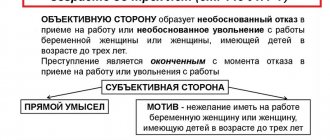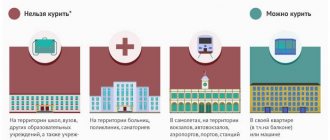From the history of FAS
The history of antimonopoly regulation in modern Russia dates back to July 14, 1990. It was then that the first antimonopoly body was approved - the State Committee of the RSFSR on antimonopoly policy and support of new economic structures. The current Federal Antimonopoly Service (FAS) was created in accordance with Decree of the President of Russia No. 314 of March 9, 2004. The Regulations on the Federal Antimonopoly Service were adopted by the Government of Russia on June 30, 2004.
The Federal Antimonopoly Service is an authorized federal executive body that carries out the functions of adopting regulations, monitoring and supervising compliance with legislation in the field of competition in product markets, protecting competition in the financial services market, the activities of natural monopolies and advertising. The management of FAS activities is carried out by the Government of the Russian Federation. Currently, antimonopoly control in the regions of the Russian Federation is carried out by 84 territorial divisions of the FAS.
Economic control
Economic control consists of the supervision of antimonopoly authorities over the acquisition of assets by certain categories of companies. This form of control is within the scope of antimonopoly legislation. The US Department of Justice conducted a study that examined the antitrust laws of 80 countries. In about 60 of them, there is legislation that allows you to control the merger of companies, but the control regime and the functions of supervisory authorities differ.
The forms of control over the implementation of antimonopoly legislation may be as follows:
- Preliminary – information about transactions carried out by large companies is controlled.
- Subsequent – control is exercised over companies after they have completed transactions.
Filing transaction notifications for companies can be either mandatory or voluntary. For example, in a country such as Australia there is no mandatory notification procedure, but prosecution is possible. Therefore, some companies submit information about completed transactions in advance in order to avoid prosecution.
Legislative acts
In the Russian Federation, the fundamentals of competition protection are regulated by:
- antimonopoly legislation;
- legislation on public procurement;
- legislation on state defense procurement;
- legislation on advertising;
- trade laws;
- tariff legislation;
- legislation on foreign investment in strategic sectors, etc.
If we talk about specific regulatory legal acts, these issues are regulated by:
- Federal Law “On Protection of Competition”;
- Federal Law “On contract systems in the field of procurement of works, goods and services to meet municipal and national needs”;
- Federal Law “On State Defense Order”;
- Federal Law “On the procedure for making foreign investments in business entities of strategic importance for ensuring the country’s defense and state security”;
- Federal Law “On the state (municipal) social order for the provision of state (municipal) services in the social sphere”;
- Federal Law “On Advertising”;
- Federal Law “On the Fundamentals of State Regulation of Trade Activities in the Russian Federation”;
- Federal Law “On the procurement of goods, works, services by certain types of legal entities”;
- Federal Law “On Natural Monopolies”.
Antimonopoly requirements are included in industry legislation (Water, Forestry, Land, Urban Planning Codes, legislation on subsoil, on electricity, etc.).
Functions of the FAS Russia
What does the Federal Antimonopoly Service do? The actions of which bodies are controlled by the FAS? This executive body performs the following main functions:
- ensures state control over compliance with antimonopoly legislation by federal executive authorities, state authorities of constituent entities of the Russian Federation, local governments, other bodies or organizations performing the functions of these bodies, as well as state extra-budgetary funds, business entities, individuals, including in the field of land use , subsoil, water resources and other natural resources;
- identifies violations of antimonopoly legislation, takes measures to stop violations of antimonopoly legislation and holds accountable for such violations;
- prevents monopolistic activities, unfair competition, and other violations of antimonopoly legislation by federal executive authorities, state authorities of constituent entities of the Russian Federation, local governments, other bodies or organizations performing the functions of these bodies, as well as state extra-budgetary funds, business entities, individuals;
- exercises state control over economic concentration (transactions, other actions, the implementation of which affects the state of competition), including in the field of use of land, subsoil, water resources and other natural resources, as well as during tenders in cases provided for by federal laws.
The implementation of the functions assigned to the FAS is carried out by:
- conducting inspections;
- consideration of cases;
- issuing orders;
- imposition of administrative penalties;
- interaction with law enforcement agencies.
Protection of competition
Antimonopoly regulation is understood as a set of economic, administrative and legislative measures carried out by the FAS of Russia and aimed at ensuring conditions for market competition and preventing excessive monopolization of the market, which threatens the normal functioning of the market mechanism.
The most important task of the FAS is to protect competition - to provide legal means for competition between business entities, in which the independent actions of each of them exclude or limit the possibility of each of them to unilaterally influence the general conditions of circulation of goods on the relevant product market. The main areas of work in the field of competition protection are the prevention and suppression of monopolistic activities and unfair competition.
Monopolistic activity is the abuse by an economic entity or a group of persons of its dominant position by concluding agreements or carrying out concerted actions prohibited by antimonopoly legislation, as well as other actions recognized by law as monopolistic activity.
Current legislation defines unfair competition as any actions of business entities (groups of persons) that are aimed at obtaining advantages when carrying out business activities and that contradict the legislation of the Russian Federation, business customs, the requirements of integrity, reasonableness and fairness and have caused or may cause losses to other business entities − competitors have either harmed or may harm their business reputation. For example, a fairly common violation in this area are cases of illegal use of the results of intellectual activity and means of individualization without the permission of the copyright holder.
Issues of antimonopoly regulation are regulated in detail by Federal Law dated July 26, 2006 N 135-FZ “On the Protection of Competition.” In order to implement the tasks assigned to it, the antimonopoly authority has the right to:
- initiate and consider cases of violations of antimonopoly legislation;
- issue binding orders;
- issue warnings to cease actions (inactions) that contain signs of violation of antimonopoly legislation;
- send warnings about the inadmissibility of violating antimonopoly legislation;
- consider complaints about violations of the mandatory auction procedure, the sale of state or municipal property;
- bring to justice for violation of antimonopoly legislation;
- apply to court with claims, statements of violation of antimonopoly legislation;
- carry out inspections of compliance with antimonopoly legislation, obtain the necessary documents and information, explanations in written or oral form;
- exercise other powers established by law.
Cartels and cartel conspiracies
Cartels are recognized as horizontal agreements between competitors to establish and maintain prices agreed upon by them, as well as leading to the division of commodity markets, reduction or cessation of production of certain goods (Part 1 of Article 11 135-FZ). Cartel agreements can manifest themselves in different ways, but most often business entities agree to set prices for goods at a certain level, divide auctions among themselves, etc.
Cartel agreements lead to a reduction in production volumes, the creation of artificial shortages and increased prices for certain goods. Participation in such a conspiracy is an administrative offense, liability for which is provided for in Parts 1 and 2 of Article 14.32 of the Code of Administrative Offenses of the Russian Federation.
Legal support of FAS inspections
Take advantage of free assistance from an experienced lawyer using the link below.
Consultation is possible online or in our Moscow office. ASK AN EXPERT
Monitoring compliance with advertising laws
The antimonopoly authority exercises, within its powers, state supervision over compliance with the legislation of the Russian Federation on advertising, including
- prevents, identifies and suppresses violations by individuals or legal entities of the legislation of the Russian Federation on advertising;
- initiates and considers cases based on violations of the legislation of the Russian Federation on advertising.
Officials of the antimonopoly body have the right, upon presentation of their official identification and a copy of the order (instruction) of the head (deputy head) of the antimonopoly body to conduct an inspection, to visit buildings and premises used by legal entities and individual entrepreneurs in order to carry out control measures, obtain documents and information necessary during the inspection.
Based on the results of consideration of cases initiated on grounds of violation of the legislation of the Russian Federation on advertising, the antimonopoly authorities issue orders to stop violating the legislation on advertising (unreliable, unethical, dishonest advertising, violation of advertising requirements for certain types of goods). Failure to comply with the instructions of the antimonopoly authority entails administrative liability.
A decision or order of the antimonopoly authority may be challenged in court or arbitration court within three months from the date of the decision or issuance of the order. Filing an application to invalidate a decision or order of the antimonopoly body does not suspend the execution of the decision or order, unless a court or arbitration court makes a ruling to suspend the execution of the decision or order.
Defense order
The activities of the Federal Antimonopoly Service for control and supervision of the state defense order cover all stages from planning to placing orders and executing contracts. After the conclusion of the contract, control by the FAS is no longer carried out, since the body no longer has the authority to issue orders. However, if the contract is terminated, the customer and the contractor can be held administratively liable.
FAS controls:
- the procedure for setting prices for state defense procurement products;
- compliance with the requirements and provisions of the current legislation in the field of state defense orders by customer organizations, lead contractors and executors.
The control itself is carried out through unscheduled inspections. If a violation of the law is established, the FAS issues a binding order to stop the violation. Failure to comply with an order or requirement of the FAS within the prescribed period entails administrative liability.
Foreign investment
FAS Russia also monitors transactions that may entail the establishment of control over Russian business companies that are of strategic importance for ensuring the country's defense and state security by foreign states and international organizations, including those created on the territory of the Russian Federation. As part of this area of activity, FAS carries out preliminary approval of transactions concluded by foreign investors with strategic organizations (for example, the acquisition of a share (block of shares) of such a business company.
Control in the field of trade and services
FAS Russia exercises control and supervision over compliance with antimonopoly legislation in the field of retail trade in food and non-food products, as well as in the provision of various services. For example, antimonopoly authorities monitor compliance with antimonopoly rules and regulations included in the Trade Law. This is especially true for the interaction of retail chains and suppliers trading in food products. An important area of FAS activity is the development of competition between private and public organizations in the markets for the provision of services in the areas of education, organization of recreation and health improvement for children, sports, culture, funeral services, etc.
Control of government procurement
The activities of the FAS Russia aimed at eliminating violations of the Law on the contract system in the field of procurement of goods, works, services to meet state and municipal needs , and restoring competitive conditions for their implementation. Monitoring of the placement of orders for goods, works and services for municipal and state needs is carried out through unscheduled and scheduled inspections, the procedure for which is approved by the relevant orders of the FAS Russia. Antimonopoly authorities, in a pre-trial manner, consider complaints from participants in competitions and auctions regarding the conclusion of government contracts.
Vertical agreements
A vertical agreement refers to agreements between business entities located at different levels in the chain of production and sale of goods. According to Part 2 of Article 11 of 135-FZ, vertical agreements are prohibited, by which:
- the resale price of the goods is established (except for cases where the maximum price for the buyer is fixed);
- a ban is established for the buyer to sell goods of other entities competing with the seller.
In some cases, vertical agreements are permitted. In particular, this is permissible if the share of each participant in a certain product market does not exceed 20%.
For committing the offense in question, the company may be brought to administrative liability under Part 3 of Article 14.32 of the Code of Administrative Offenses of the Russian Federation.
Tariff regulation
FAS regulates government prices and tariffs for one or another type of product or service provided by natural monopolies. This area of FAS activity is associated with violations committed by regional executive authorities in the field of state regulation of prices (tariffs), which have a negative impact on both the regulated type of activity and related markets, and are a consequence of the imperfections of the current system of regulatory legal regulation of pricing. Tariff regulation covers pricing issues in the oil and gas industry, electric power industry, railway and air transport, in relation to medicines and medical products, the utilities sector in terms of setting tariffs for heat, water supply and sanitation, and other areas, the list of which is established by the relevant regulatory legal act. The powers of the FAS in this area also include consideration of disagreements and disputes between the authorities of the constituent entities of the Russian Federation, enterprises and consumers in the field of regulation of tariffs by the state.
Author's podcast “The Investigator Will Call”
A project by our partners Andrey Shevchenko and Mikhail Kuchin, where they analyze the most resonant events in the country and their consequences for all of us.
Everything about new laws and high-profile cases in Russia and in the world is as accessible as possible and without tediousness.
Find out more
Concerted action
As a rule, the most common are the coordinated actions of business entities to maintain prices for goods in the presence of consumer demand for them, to oust competing business entities from the market (creating obstacles to market access).
Positive judicial practice in this category of cases is still small and is rather in its formation stage. This is explained by the difficulty of proving the fact that economic entities acted in a coordinated manner and consciously made their behavior dependent on the behavior of other market participants, because coordinated actions do not have any formalization in the form of agreements or the achievement of any other formal agreements.
What powers does the FAS have?
The main powers of the FAS include:
- control over compliance with antimonopoly legislation;
- control over compliance with legislation on natural monopolies;
- control over compliance with advertising legislation;
- control over compliance with legislation in the field of procurement of goods, works, services to meet state and municipal needs and in the field of procurement of goods, works, services by certain types of legal entities;
- control over compliance with legislation in the field of state defense procurement;
- control over the implementation of foreign investments in business entities that are of strategic importance for ensuring the country’s defense and state security;
- determination (establishment) of prices (tariffs) and control over issues related to the determination (establishment) and application of prices (tariffs) in the areas established by law;
- consideration of disagreements arising between executive authorities of the constituent entities of the Russian Federation in the field of state regulation of tariffs, local government bodies, organizations carrying out regulated activities in the areas of natural monopolies, and consumers;
- consideration of complaints against authorized bodies in the field of urban planning relations and organizations operating utility networks;
- control in the field of mandatory bidding in accordance with the legislation of the Russian Federation for the sale of state (municipal) property, property rights and natural resources;
- pre-trial consideration of disputes arising during the establishment and application of prices (tariffs) in the areas of heat supply, water supply and sanitation;
- settlement of disputes related to the establishment and application of fees for technological connection in the electric power industry and (or) standardized tariff rates that determine the amount of this fee.
Directions of antimonopoly policy and antimonopoly legislation of the state
Among the main directions of the state's antimonopoly policy are:
- direct price regulation (establishment by state legislation of maximum permissible prices for the monopolist’s products);
- taxation (two types of taxes: product taxes, the rate of which is set per unit of production, and the total amount is determined by the volume of output; and per capita, that is, levied regardless of the volume of output - for example, the cost of a patent or license for the exclusive right to engage in a certain type of activity);
- regulation of natural monopolies (monopoly policy is developed and implemented by the state; in all countries with a market economy there is antimonopoly legislation).
How not to become a monopolist in the eyes of the FAS
The following recommendations can help you avoid problems with FAS.
- Do not enter into anti-competitive agreements, both vertical and horizontal. Moreover, we are talking not only and not so much about written contracts, but about oral agreements. Antimonopoly authorities can detect the fact of collusion by indirect signs, for example, by filing applications for participation in tenders from the same IP addresses, non-competitive behavior of tenderers, etc. Thus, collusion may be evidenced by the conclusion by the winning bidder of a supply agreement (subcontract) with the losing company.
- Do not refuse an antimonopoly audit - it will help assess the risks of being held accountable for violating antimonopoly laws. In order to have a complete understanding of the risks and hidden problems, a thorough analysis of the company’s documents, its correspondence with counterparties, past experience of holding the company accountable, etc. is carried out.
- Create an internal compliance system in the company - this possibility is provided for by Article 9.1 of 135-FZ. This includes the development of a number of internal acts, the appointment of a responsible person, increasing the level of legal literacy of employees, etc. The developed package of documents can be agreed upon with the FAS: in this case, you will be sure that their content complies with the law. Antitrust compliance is especially necessary for companies working in the field of government contracts, as well as large companies with a dominant position in the market.
- If the FAS makes claims against you, contact an experienced lawyer. A specialist will help you avoid administrative (and in some cases, criminal) liability, or mitigate the punishment as much as possible.
Recommended reading:
Concept and types of tax audits






